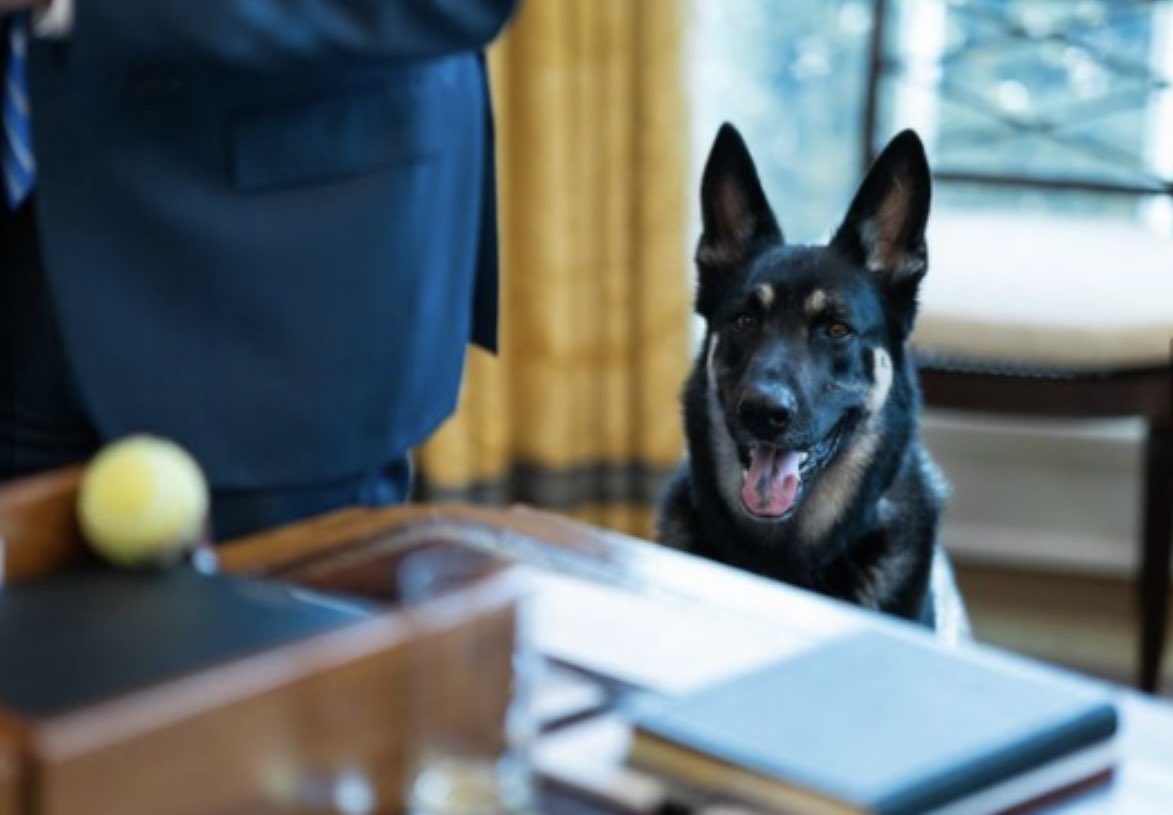President Joe Biden’s two-year-old German Shepherd Commander was banished from the White House after the 11th known biting incident. While not officially confirmed, certain sources like CNN suggest that the actual number of incidents may be even higher. One of these incidents even resulted in a hospitalization when Commander unprovokedly bit a Secret Service agent’s arm and thigh.
According to the Centers for Disease Control (CDC), more than 4.5 million people in the United States are bitten by dogs every year. Dogs bite for a multitude of reasons, but most commonly as a reaction to something, such as stressful or scary situations. Dogs also bite if they feel threatened, to protect something valuable, if they are sick or injured and do not want to be bothered or while playing.
Although all dog breeds can bite, German Shepherd bites are notably dangerous. Based on a study from 2019, the American Animal Hospital Association listed German Shepherds as one of the six breeds with the most dangerous bites. They have a bite force of 238-pound force per square inch (PSI), whereas humans only have a bite force of 162 PSI. This makes Commander’s biting incidents even more of a concern for the safety of White House staff members.
As the residence and workplace of the president, the White House sets the precedent for work environments nationwide. Secret Service agents detailed Commander’s behavior as aggressive, with six out of the 11 confirmed incidents being significant bites that required medical attention. While federal law protects Secret Service agents who are federally employed by requiring organizations to “establish and maintain an effective and comprehensive occupational safety and health program” and to report “occupational accidents and injuries annually to the secret of the Labor,” these incidents still create an unsafe working environment. For any job, let alone one that entails protecting the president, dog bites should not have to be a concern.
The White House announced in a statement to POLITICO that the Bidens are partnering with the Secret Service and Executive Residence to establish leash protocols, training and creating designated areas for Commander to exercise. While this is a step in the right direction, the Bidens should have done more to address the issue promptly. They had other incidents with their previous dog Major, who also perpetrated multiple biting incidents in the White House. After Major bit two people — a Secret Service agent and a National Park Service worker — the Bidens moved him to Wilmington, Del., to receive further training. However, Major never returned to the White House and now lives with family friends.
After the incidents with Commander, the Bidens removed him from the White House as well, and sent him to an unknown location while determining the next steps. In Washington, D.C., the mayor can elect for a dangerous dog to be “humanely destroyed” when necessary. A dangerous dog entails any dog that “chases or menaces a person or domestic animal in an aggressive manner, causing an injury to a person or domestic animal that is less severe than a serious injury,” or “in a menacing manner, approaches without provocation any person or domestic animal as if to attack, or has demonstrated a propensity to attack without provocation or otherwise to endanger the safety of human beings or domestic animals.”
While Commander has attacked White House staff members unprovoked, it is important to investigate the particular environments and situations of the attacks and give him more training before doing anything drastic. The safety and comfortability of the White House staff members needs to be the priority though. It needs to be the responsibility of the owners, the Bidens, to make sure their dogs do not pose a threat to other people, especially those working for them.
The Bidens’ decision to work with the Secret Service and Executive Residence to establish leash protocols, training and designated areas for Commander to exercise highlights their eagerness to address the issue. Training and responsible pet ownership can often mitigate aggressive behavior in dogs, although the Bidens should have learned to set these protocols before any incidents occur from their experience with Major. With the overarching precedent the White House sets for workplaces across the United States, safety is a crucial concern, and every effort should be made to keep employees out of harmful situations.
While the Bidens’ commitment to addressing Commander’s aggressive behavior is noteworthy, waiting 11 incidents to remove him and actively work to solve the issue underscores the importance of proactive measures and responsible pet ownership. This situation emphasizes the need for early intervention and the establishment of clear protocols before concerns arise.
Hailey Baker, FCRH ’27, is a political science major from Gaithersburg, Md.










































































































































































































